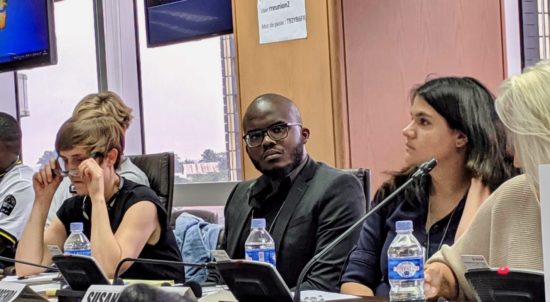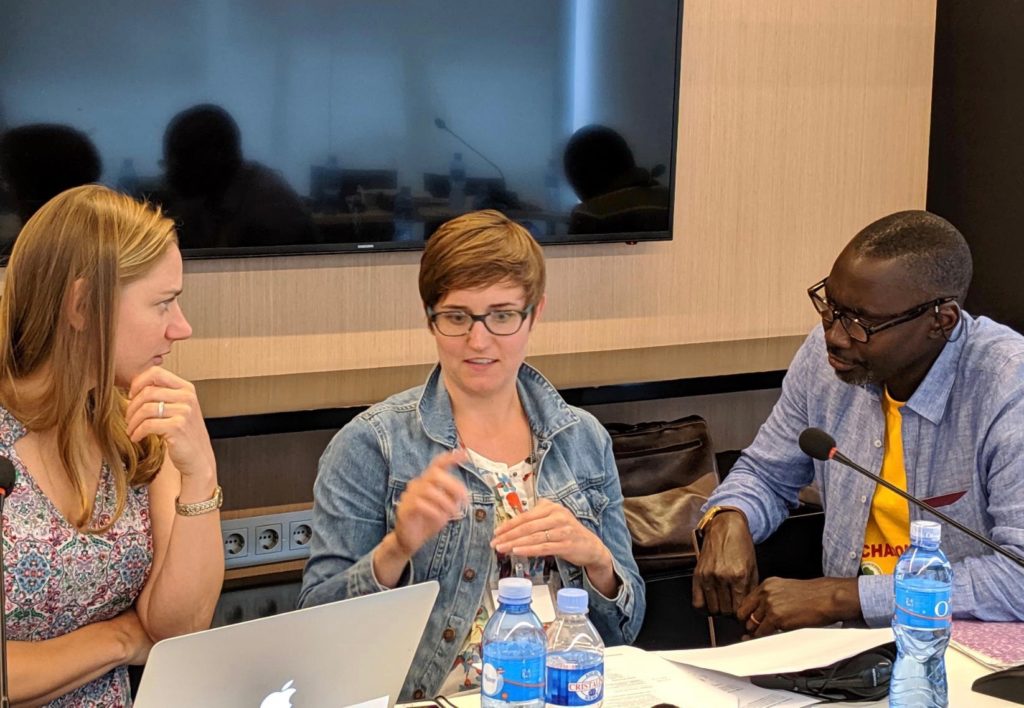Abidjan Meetings on Accountability in International Finance

Last week, members of Accountability Counsel’s Communities, Policy, and Research teams attended a series of meetings in Abidjan, Côte d’Ivoire centered around international finance institutions and their accountability offices, also known as independent accountability mechanisms (IAMs). As we have seen in our cases supporting communities to raise grievances through accountability offices, these mechanisms are critical means of delivering remedy and justice to people who have been harmed by internationally financed projects.
In Abidjan, Accountability Counsel joined civil society partners and accountability office professionals for the 16th annual meeting of the Independent Accountability Mechanism Network (IAMnet). IAMnet is a network of accountability offices at international financial institutions, and it serves as a key forum for knowledge sharing and capacity building among professionals in the field of accountability. This year’s IAMnet annual meeting was hosted by the African Development Bank’s accountability office, the Independent Review Mechanism (IRM).
As part of the IAMnet Annual Meeting, Accountability Counsel co-organized and participated in a civil society roundtable with IAM professionals titled “Monitoring – Where the Rubber Meets the Road.” The roundtable provides an opportunity for civil society organizations that work within the nexus of accountability and international finance to engage with staff from the world’s accountability offices on a subject of importance to the field. This year’s roundtable focused on part of the ‘last mile’ of an accountability process –monitoring the implementation of complaint outcomes to ensure that promises are kept.
Even when a community complaint about a development project results in a robust investigation and institutional commitments to address non-compliance, meaningful remedy for the affected community can still be elusive if the complaint’s outcomes are not properly monitored and implemented. The same is true of a facilitated dialogue process that results in an agreement with measures to address grievances; without effective monitoring that ensures full implementation of the agreement, affected individuals and communities may still be left without recourse. During the roundtable, participants discussed monitoring best practices, the roles of various stakeholders, and the value of data in enhancing the monitoring process.

Accountability Counsel and partners, Bank Information Center and Lumiere Synergie
pour le Developpement, at the IAWG Strategy Session.
At Accountability Counsel, we are seeing the critical importance of effective monitoring in our cases in Mongolia, where we support nomadic herders affected by a massive mine, and in Haiti, where we assist a collective of farmers who were displaced by an industrial park. Through an accountability office process, the communities in both cases successfully negotiated agreements that address the harmful impacts of the projects. Diligent work is now needed to ensure that the commitments are delivered in a timely manner, and that challenges to implementation are overcome to achieve meaningful remedy. Lessons from monitoring and implementation in these and other cases we support informed our discussion at the civil society roundtable in Abidjan.
In addition to the roundtable, Accountability Counsel co-hosted a strategy session of the International Advocates Working Group (IAWG) with partners from the Bank Information Center, Both ENDS, the Centre for Research on Multinational Corporations (SOMO), Lumière Synergie pour le Développement (LSD), and Open Society Initiative for West Africa (OSIWA). IAWG members from the African continent and around the world gathered in Abidjan to discuss trends and strategize future collaborative efforts to ensure institutional accountability frameworks are strong and effective. This strategy session builds on the recent IAWG retreat, which was held in Cordoba, Argentina.
Finally, Accountability Counsel also engaged in meetings with key stakeholders at the African Development Bank concerning the upcoming policy review of the IRM to ensure that the accountability office operates according to best practice and is as effective as it can be. Read more about our advocacy relating to the African Development Bank, including participation in past IRM policy reviews, here.

